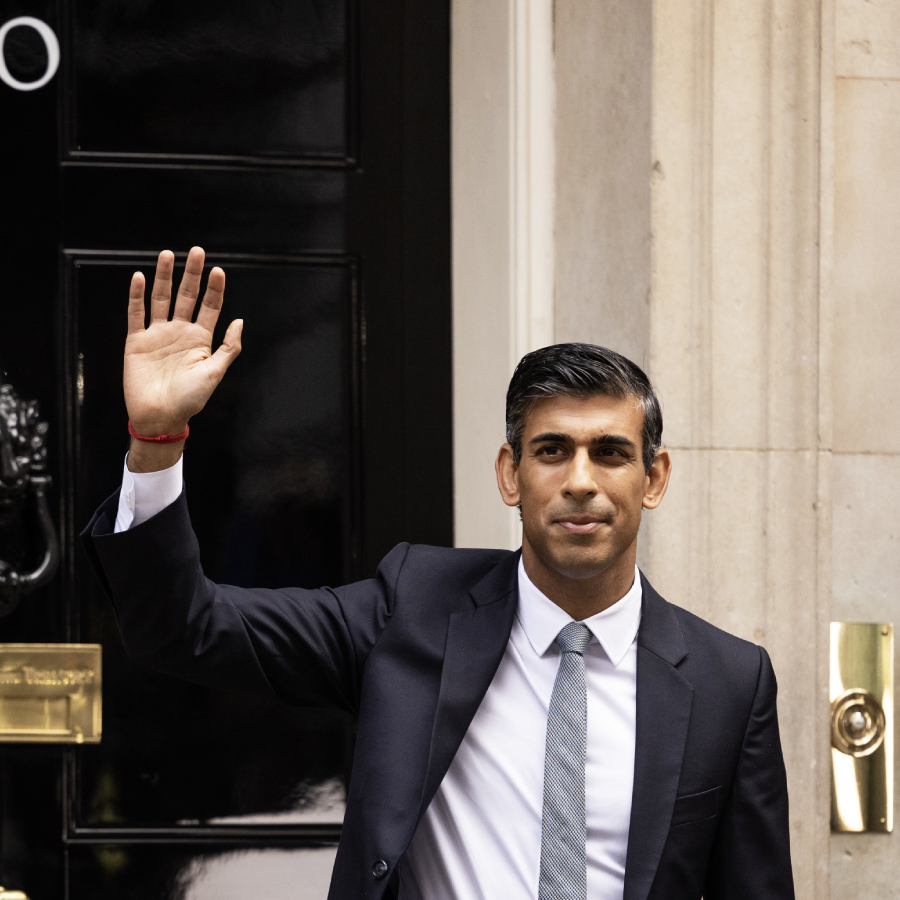"Told off for sharing my salary": How a lack of pay transparency is fuelling the gender pay gap
You need to start telling your colleagues what you earn, ASAP...


You need to start telling your colleagues what you earn, ASAP...
Talking money is without doubt a major taboo. It’s rude to ask a new acquaintance over dinner what their salary is, so you’d never dream of it, right?
In that scenario, it’s completely fair enough. Most people probably don’t want to offer up the ins and outs of their monthly pay cheque. But there are some circumstances where pay transparency would benefit us all - especially women. And that’s within the workplace.
Ultimately, the culture we live in - the one that shrouds salaries in secrecy - is fuelling the gender pay gap. It actively enables companies to exercise disparity in wages. Because as long as it’s frowned upon to tell people what you earn, there’s no accountability.

When Georgia, a 23-year-old PR Director, told her former manager in a one-to-one meeting that she knew she was underpaid in comparison to her colleagues, she was surprised at the conversation that ensued. Instead of addressing the concerns head-on, reassuring her that she was valued by the company and promising to rectify the imbalance, Georgia’s boss... told her off.
“I was told directly that I shouldn’t be discussing salaries with other members of the team,” recalls Georgia. “Knowing I had made me feel like I’d done something wrong.” Worrying she'd overstepped the mark, Georgia began second guessing her decision to talk to her co-workers about pay. “I immediately tried to justify to my manager that it had only come up in casual conversation,” she tells Marie Claire.
Slumped back at her desk, feeling disheartened about the uncomfortable conversation, Georgia began to ruminate on it. “I realised that her abruptness could have actually been from a place of fear.” After a quick Google, which confirmed that pay is actually something staff should be encouraged to discuss with colleagues (especially women), Georgia wondered whether her manager’s reaction was indicative of a company-wide salary discrepancy issue. She decided to look into it further.
Marie Claire Newsletter
Celebrity news, beauty, fashion advice, and fascinating features, delivered straight to your inbox!

“I discovered that some people had worked at the company for almost 10 years on minimum wage and without a single pay rise,” she explains. “Women were managing teams of 5+ people and earning thousands of pounds less than men at the same level who didn’t manage anyone, and juniors were even being brought in on higher salaries than experienced existing employees because ‘that was just the hiring market’.” Georgia also uncovered that members of staff had been asked by their manager to actively lie about their higher salaries to colleagues who were being paid less.
Needless to say, Georgia swiftly left the organisation. But she’s not the only one who’s experienced such shadiness around pay. When she worked at a technology retail store, 25-year-old Danni Scott, now a journalist, was shocked to receive a company-wide email discouraging employees from discussing pay. The email stated that workers should “never discuss pay with other members of staff, as it is a private matter.”
“Nobody challenged the email formally but it did make us all feel annoyed,” Danni tells Marie Claire of her colleagues' reaction. “Surely it’s our choice to discuss our financial situations, not something to be mandated by a company? I believe Head Office was concerned that any discussions would have a knock-on effect on the entire payroll and were scared for their pockets.”

20 November is Equal Pay Day in the UK - a day identified annually by gender equality charity The Fawcett Society as the point in the year where women effectively stop earning, thanks to the gender pay gap. The average gender pay gap for full-time workers in the UK is currently calculated to be 8.3%. In real terms, it means that for every £1 a man earns, a woman doing the exact same job would earn, on average, just shy of 92p. When you think about it like that, it’s painfully frustrating.
But the more we keep quiet about what we earn, the more this culture is able to thrive.

Company review site Glassdoor conducted some research last year that reveals some very uncomfortable findings about pay transparency. Only one in four workers feel strongly that their employer is transparent about pay, despite 70% of those quizzed believing that pay transparency is vital for employee satisfaction.
“The current culture of secrecy around salaries is reducing awareness of the real and urgent problems of the gender pay gap,” says Professor Emma Parry, an expert in HR from Cranfield School of Management. “If conversation is stifled, it becomes harder to identify where such problems exist,” she adds. “If we truly want to eradicate the gender pay gap, transparency in pay scales and encouraging discussion provides an open and honest space for employees, who will understandably have a view on any discrepancies within their organisation.”
Glassdoor’s research also uncovered how much less likely women are to demand their worth from an employer. 67% of female workers did not ask for a pay rise in 2020, which is a staggering 30% more than men. But television producer Siobhan is a shining example of how talking openly about pay can lead to fairer remuneration.
As she approached the end of a six-month fixed contract at a production company, Siobhan was offered a six-month extension. Around that time, she happened to be discussing with a male colleague whether she should stay, or go somewhere new. “To help me decide what to do, he asked me outright how much I was getting paid,” recalls Siobhan.
“In the moment, I was shocked. It felt like a 'rude' thing to ask, but I swallowed my feelings of discomfort and told him my weekly rate,” she tells Marie Claire. “Without flinching, he then told me that he was getting paid £200 more than me per week. He had the same job title, and less experience than me.”
Unsurprisingly, Siobhan was furious. “I felt angry at the company I was working for, and grateful to him.” Her colleague encouraged her to use the information to leverage a pay rise, and said he was happy to tell their boss that he'd shared the information himself.
Her confidence boosted, Siobhan arranged a meeting with her boss to discuss her contract, and said she’d stay for an increased rate of £200 extra a week. “She said no, adding that it was more than their ceiling rate for my job title,” says Siobhan. “I held back every instinct I had to say, 'ok, no problem, sorry I asked,' and instead told her that I knew what my colleague was getting paid.”
Siobhan’s boss looked “embarrassed” at being challenged, and while she initially denied it, she followed up the next day to confirm they would pay what she had asked. Siobhan accepted, and earned herself an extra £5,200 in total over the following six months.
“I was obviously delighted with the pay rise but annoyed that I had been knowingly underpaid for the last six months,” says Siobhan. “My experience shows that it's so important to discuss pay among colleagues - particularly between men and women. Transparency is one way of closing gender pay gaps, and leading to a more equal workplace,” she tells Marie Claire.

Ilona Alcock, Co-Founder and Director at business development consultancy Elevate, also believes we’re holding ourselves back by keeping quiet. “Not talking about money takes our sense of control away from us. It is often proven that organisations with transparent pay structures are less likely to have a gender pay gap," she says, adding that a “lack of discussion around this only serves to benefit certain demographics such as white men.”
“Salary secrecy often means that people of colour are more likely to earn less than their colleagues,” Ilona tells Marie Claire. “Active discouragement of discussing pay raises a huge red flag for me. Although leaving is not an option open to everyone and many factors should be considered, lack of transparency on pay can be a sign of a toxic workplace and not one that you should invest your time into.”
The obvious answer is to start having open conversations about what you earn, but a deep-rooted stigma around money means this is usually easier said than done. “It’s always easier to offer information, than to ask for it,” suggests Ilona as a way in. “Tell people what you earn, but be mindful that it may provoke an emotional reaction, particularly if a colleague is being underpaid and had not realised.”

As for broaching the topic of unfair pay with your boss, Georgia recommends knowing your rights. “Employees have a legal right to discuss salaries and you should feel empowered to speak up if you notice that something is wrong, especially when it comes to issues such as discrimination.”
Ilona agrees. “Arming yourself with research and resources about market rate is a good place to start. For example, it has been found that turnover is lower in companies with transparent pay policies and adverts with salaries attract stronger candidates. By explaining these benefits, you are removing the emotion from the issue and ensuring that your suggestions are taken seriously,” she says.
“Ultimately, we all go to work to be paid a salary,” the business expert points out. “So it’s bizarre that we don’t talk about it.”
Feeling inspired to fight for your worth? Go and start some conversations about salaries, and ask for that pay rise.
Cat is a Senior Editor at Marie Claire, covering news and features across the brand's key purpose pillars, including women's issues, politics, career, mental health, female empowerment and equality, as well as books.
-
 Mytheresa is having a secret sale right now and these are the 11 cult items I'm eyeing
Mytheresa is having a secret sale right now and these are the 11 cult items I'm eyeingIncluding the designer bag that was everywhere at Milan Fashion Week
By Clementina Jackson
-
 Prince Harry reportedly extended an 'olive branch' to Kate and William on latest UK trip
Prince Harry reportedly extended an 'olive branch' to Kate and William on latest UK tripBig if true
By Iris Goldsztajn
-
 How Prime Video is protecting Blake Lively amid her new movie promo
How Prime Video is protecting Blake Lively amid her new movie promoAn understandable move
By Iris Goldsztajn
-
 These are the best UK cities to live in, based on cost of living
These are the best UK cities to live in, based on cost of livingBy Jenny Proudfoot
-
 The second cost of living payment arrives from today - are you eligible?
The second cost of living payment arrives from today - are you eligible?More than 8 million households are eligible to receive the £650 cost of living payment.
By Jenny Proudfoot
-
 Rent prices have risen, again - and this is particularly bleak if you live in London
Rent prices have risen, again - and this is particularly bleak if you live in LondonIt's not good news for renters as the average weekly rent has increased across the UK, again.
By Lauren Hughes
-
 Can Rishi Sunak turn around Britain's crumbling economy?
Can Rishi Sunak turn around Britain's crumbling economy?Experts give their thoughts.
By Lauren Hughes
-
 12 incredibly stylish wedding dresses you'll never believe are under £500
12 incredibly stylish wedding dresses you'll never believe are under £500For the chic yet budget-conscious bride
By Sofia Piza
-
 Campaign groups are urging the government to put a cap on rent as landlords hike up prices
Campaign groups are urging the government to put a cap on rent as landlords hike up pricesLandlord group claims that property owners are not just “getting greedy”, but are adjusting prices to cope with the cost-of-living crisis
By Kate Hollowood
-
 UK wages have fallen at the sharpest rate on record
UK wages have fallen at the sharpest rate on recordWith inflation rates set to keep rising, things could get even worse later in the year
By Kate Hollowood
-
 Calls to a helpline for sex workers have gone up by a third since June
Calls to a helpline for sex workers have gone up by a third since JuneThe English Collective of Prostitutes wants more women to know about the potential dangers of doing sex work through sites like OnlyFans
By Kate Hollowood